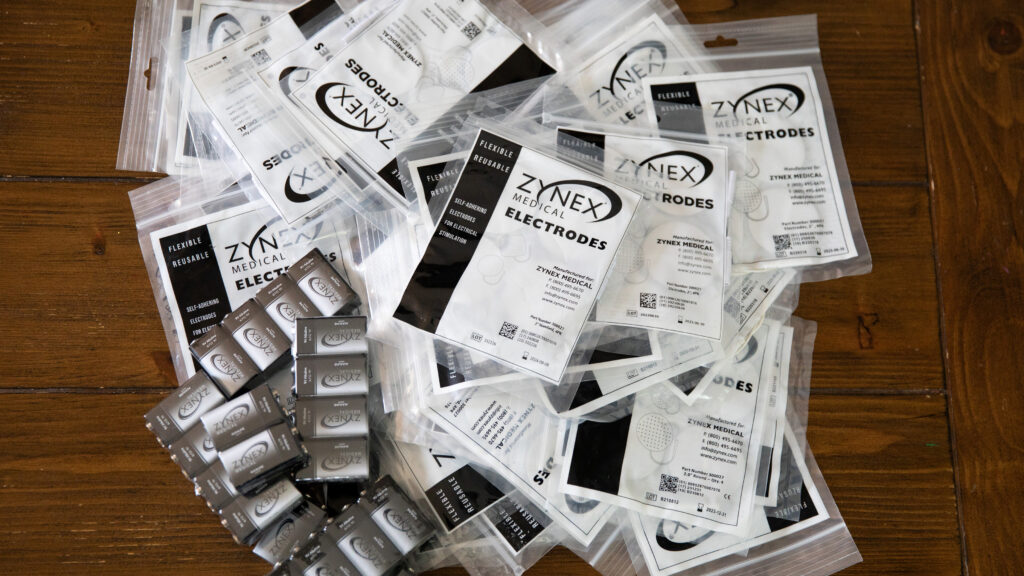Sending patients heaps of medical supplies to score more money from insurers is common in the device industry. If insurers decline to cover the supplies, patients are stuck paying for materials they didn’t need.
STAT examined one of the companies perpetuating this practice, a pain management device company called Zynex Medical, and the frustration among both its patients and former employees. Here are five takeaways.
advertisement
The ‘razor blade’ business model
Zynex sells nerve and muscle stimulation machines, known as TENS and EMS units, to treat pain and soothe muscles. But the company makes most of its money from monthly shipments of batteries and electrodes — almost 70% of its $184 million revenue in 2023 came from these supplies.
Constant battery shipments, and subsequent bills, blindside patients
At first, patients were mildly annoyed by the onslaught of batteries they never used. But when Zynex sent them bills for hundreds of dollars, they were outraged. Secondhand sellers offer Zynex batteries for $5 and electrodes for $13 on Ebay. None of the six patients STAT spoke with, as well as dozens of people recounting complaints in online forums, thought they would be on the hook for batteries they never used. But insurers are increasingly kicking the company out of network, making them more likely to deny Zynex’s claims.
The practice also causes tension internally
Four former employees told STAT the battery issue was systemic, frequently costing the company business and requiring its 500 sales reps to scour for uninitiated clinicians. Turnover at Zynex is high, employees said, because of pressure to deliver under uncertain and chaotic circumstances. Zynex did not respond to STAT’s multiple requests for comment, over the phone and email, as well as a detailed list of questions.
advertisement
Insurers are unlikely to tamp down on oversupplying schemes
Oversupplying is rampant in health care, but it rarely impacts insurers’ bottom lines enough to put companies like Zynex under regulatory or legal scrutiny. As a result, patients are left to fend for themselves. Zynex’s now-defunct competitor Empi had to pay the Department of Justice $7.62 million in 2018 for billing Tricare. But Zynex has not faced the ire of any major insurers in federal court, despite people raising concerns about its billing practices since at least 2014, when a former Zynex billing employee sued the company for allegedly fraudulently billing Medicare for its monthly battery shipments.
In fact, it can be easy for any kind of fraud to escape insurers’ notice
Insurers aren’t always motivated to root out all forms of fraud. Health care fraud experts told STAT that insurers have no incentive to work with each other, because then they would have to compete to claw money back. Some plans compete with each other to create a better network of medical providers to attract more patients. Eating a few thousand dollars on unnecessary medical supplies may seem like a better option than losing a durable medical equipment provider to a competing insurer.

